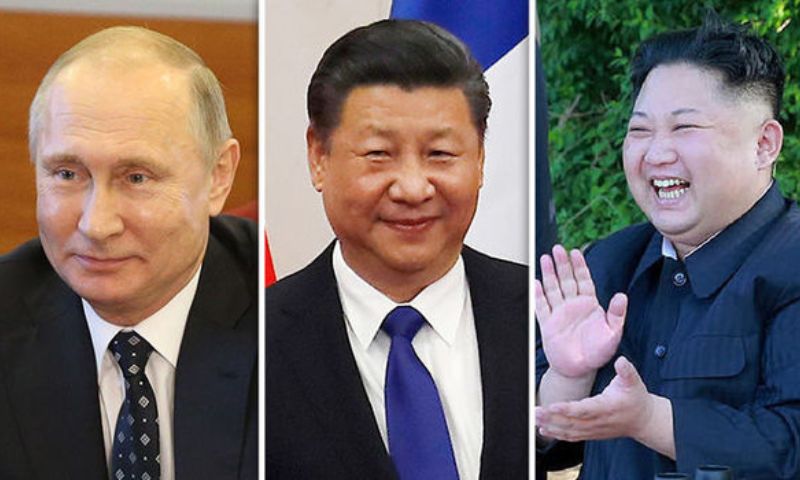WASHINGTON: China, despite its public alliance with Russia, is worried North Korea could be emboldened into starting a regional crisis following Russian President Vladimir Putin’s visit to Pyongyang, a top US official said on Monday.
Deputy Secretary of State Kurt Campbell stated that China has conveyed fears to the United States about North Korea’s potential provocative actions in Northeast Asia post-Putin’s defense deal with Pyongyang.
“China has indicated that it is anxious that North Korea could be emboldened to take steps that may lead to a crisis in the region,” Campbell remarked during a session at the Council on Foreign Relations.
“I think it would be fair to say that China is probably worried that North Korea will be somehow encouraged to take provocative steps that could lead to a crisis in Northeast Asia,” Campbell said at the Council on Foreign Relations.
Campbell highlighted recent military incidents initiated by North Korea along its border with South Korea, coupled with provocative rhetoric and a steadfast refusal to engage in diplomacy with the United States, as indicators of heightened tensions.
The United States believes that Russia is considering extending support to North Korea, potentially including in nuclear capabilities, Campbell added, characterizing these developments as perilous and under close observation.
“This is a dangerous set of developments and one that we are watching,” Campbell said.
North Korea, currently under extensive UN sanctions due to its nuclear and missile programs, has found a receptive partner in Russia, a permanent member of the UN Security Council, particularly amidst Moscow’s ongoing conflict with Ukraine.
During Putin’s visit, a defense agreement was signed between Russia and North Korean leader Kim Jong Un, which included mutual defense pledges in case of an attack, reminiscent of Cold War-era alliances.
While China has historically been North Korea’s primary ally, recent interactions suggest a distancing, even as Beijing has remained publicly reserved about Putin’s visit.
Campbell further noted US accusations against China for facilitating Russia’s military build-up through industrial exports, though not direct arms transfers, amidst shared hostility towards the West.
Addressing broader geopolitical dynamics, Campbell predicted potential future tensions between Moscow and Beijing despite current cooperation, citing differing perspectives on issues like North Korea and Beijing’s relations with Central Asian states.
In response to questions about the US-Philippines treaty amid escalating tensions in the South China Sea, Campbell affirmed ongoing consultations with Filipino officials, emphasizing a cautious approach to dialogue with China rather than seeking confrontation.
“Our senior officials have been very clear about what circumstances we would consider that the treaty between the United States and the Philippines would come into play,” Campbell said, declining to elaborate further.
“The Philippines desires dialogue and does not seek a crisis with China,” Campbell remarked, referring to diplomatic efforts to manage regional disputes.
Putin’s visit to Pyongyang has raised alarms in South Korea, which has traditionally sought to normalize relations with Moscow since the end of the Cold War and is now reconsidering its arms export policies to Ukraine in response.
The developments come amidst broader diplomatic efforts by Chinese President Xi Jinping to ease tensions with the United States, with exceptions including assertive actions in the South China Sea disputed territories.
Campbell concluded by underscoring ongoing US efforts to address regional tensions and reiterated support for the Philippines while navigating complex security dynamics in the Indo-Pacific region.























